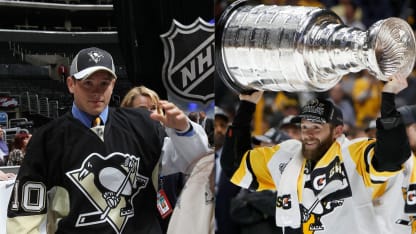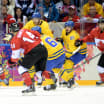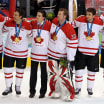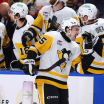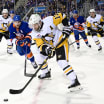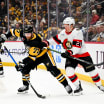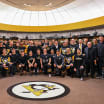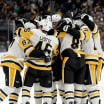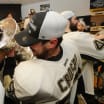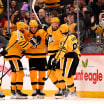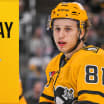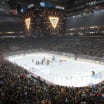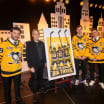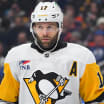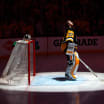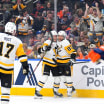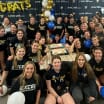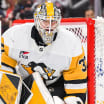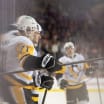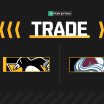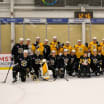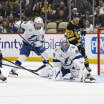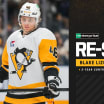While Rust has developed into a perennial 20-plus goal scorer, the offense wasn’t quite there in the 2008-09 season, his first with the U.S. National Team Development Program – which was just 25 minutes from his hometown in Michigan. That meant expectations weren’t sky high for Rust in his draft year, which made the whole process somewhat easier.
“Obviously, like I’ve tried to do my entire career, I was out to prove people wrong. But I didn't have any sort of spotlight on me or anything, especially playing on that USA team with a lot of highly-touted players who were going to be first, second-rounders almost guaranteed,” Rust said. “So, it kind of took a little bit of the pressure off, and I was able to kind of just continue to work hard in the background and things like that.”
Rust ended up having a strong 2009-10 campaign, ranking among the USNTDP scoring leaders with 23 points (10G-13A) in 27 games in the USHL. “So as the draft got a little bit closer, I think it got really exciting because I did have a good year that year,” Rust said. He remembers talking a lot with Tom Fitzgerald, assistant GM to Ray Shero at the time, and remembers seeing Brian Fitzgerald, the Penguins amateur scout based in his region, at games.
"You walk into a rink today and you're always looking for the biggest kid, the fastest kid, the fanciest kid. Bryan was always the consistent kid, especially that year," Brian Fitzgerald said in this 2022 feature. "I was looking at some game reports, and what I wrote on them was that every game, Rust competed. He made good plays. He was responsible in all three zones.”
Rust had been to California, but not to Los Angeles. So, once the draft arrived, Rust, his dad Steve and mom Betsy tried to savor every moment of the experience. They arrived Wednesday night, and since Bryan had not been invited to that year’s NHL Draft Combine, he spent all day Thursday and some of Friday interviewing with teams.
“If you didn't go to the combine, it's not the end of the world,” Rust said. “Things can still happen. You can still get drafted relatively high. I don't know how many guys go to the combine, but I was still drafted 80th overall, and I'm pretty sure there's a lot more than 80 guys that go to that thing.”
On Friday night, Rust watched four of his USNTDP teammates – Justin Faulk, Jon Merrill, Jason Zucker and Stephen Johns – get taken in the first round. Saturday morning, Rust arrived at the arena, not sure what to expect, though he did have an idea.
“I remember someone called to tell my advisor that I was going to be drafted. I thought the Islanders were going to take me. They were picking right around the Penguins,” Rust said. “But then it turned out to be the Penguins, and I think it ended up working out pretty well [laughs].”
After Pittsburgh called his name in the third round, Rust hugged his parents, saying it’s hard to put into words what they mean to him. “When you are able to accomplish something, and they've been there in your corner every step of the way, and they’ve sacrificed a lot of time and a lot of effort – and hockey's an expensive sport, so a lot of money as well – into making my dreams come true... to have them always there, and especially there in that moment, is like... you can't ever thank them enough.”
Rust will also ‘always be indebted’ to Shero for giving the go-ahead to draft him, saying, “I think without that, I don't know where I'd be right now.”
A lot of time has passed since that moment, and a lot has changed. But if Rust can offer any words of wisdom to kids who are in that position or hope to be, it’s this:
“I think that it doesn't really matter where you go, what you do, you always got to keep working. I've seen a lot of guys who are first-rounders fizzle out, and a lot of guys who went undrafted or went late in the second day figure it out and work harder. So, I think it's more of a benchmark of where you are and a step in your career. It's not going to define who you are or what you're going to be. You can always work to achieve more.”

